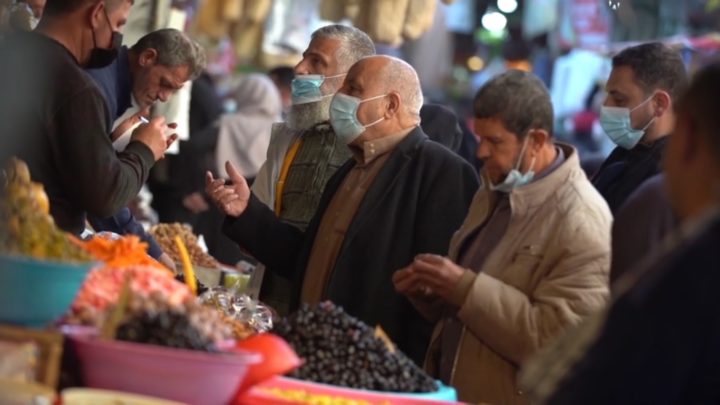People in the Gaza Strip are coping with an alarming increase in reported COVID-19 cases, with more than 1000 new infections each day for the past couple of weeks. Almost all of Gaza has been currently declared as a red zone by the Ministry of Health because of widespread community transmission, with positivity rates of between 30% and 38% for all tested persons.
Hospitals are struggling under immense pressure to admit the newly admitted patients and are struggling with insufficient ICU capacity and a critical shortage of essential medicines. On top of this, only a couple of thousand vaccine doses have entered the Strip so far, far short of what is needed to cover the population of more than two million.
Susanne, 41, a nurse and a mother of four said:
“The situation is scary. Every day I see people dying of COVID-19. When I am at home, I do every possible recipe that I can think of that could increase the immunity of my children. I always wonder how to protect them and how to protect myself so that they don’t have to face my death.”
The measures imposed by the authorities include a night curfew and banning vehicle movement after 7.00 pm. Much of their success will depend on people’s willingness to adhere to public health measures such as wearing a mask or social distancing while celebrating Ramadan and breaking their fast with families and friends nightly.
On top of the pandemic, the humanitarian situation has been steadily deteriorating in Gaza. Before the COVID-19 crisis, the economic situation was the worst it had been since the conflict in 2014. Four out of five families are in precarious job situations with no sustainable income, the unemployment rate was at record rates of over 50%, with youth unemployment reaching almost 70%. People need to be able to provide for themselves and their families and keep businesses open.
“I follow the news about COVID-19 and the second or third wave in Gaza, name it as you wish. The virus will remain among us, and we must adapt and live with it. Ramadan is a good season to increase sales, I cannot close under any circumstances,” said Rawan, 26, cosmetics shop saleswoman.
Lockdown restrictions to combat the pandemic, the restrictions on social interaction during the month of Ramadan, and the aggravation of economic challenges are heavily impacting the lives of people in Gaza, leaving them feeling helpless to ever overcome the pandemic.
Although the first doses of vaccines have started to arrive in Gaza and present a glimmer of hope, the volume of a couple of thousand doses is simply not enough for the more than two million people living in Gaza. More vaccines are desperately needed.






